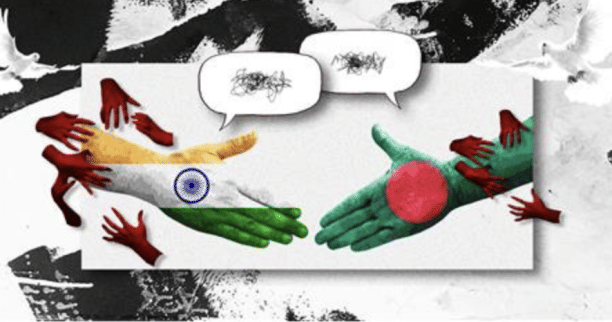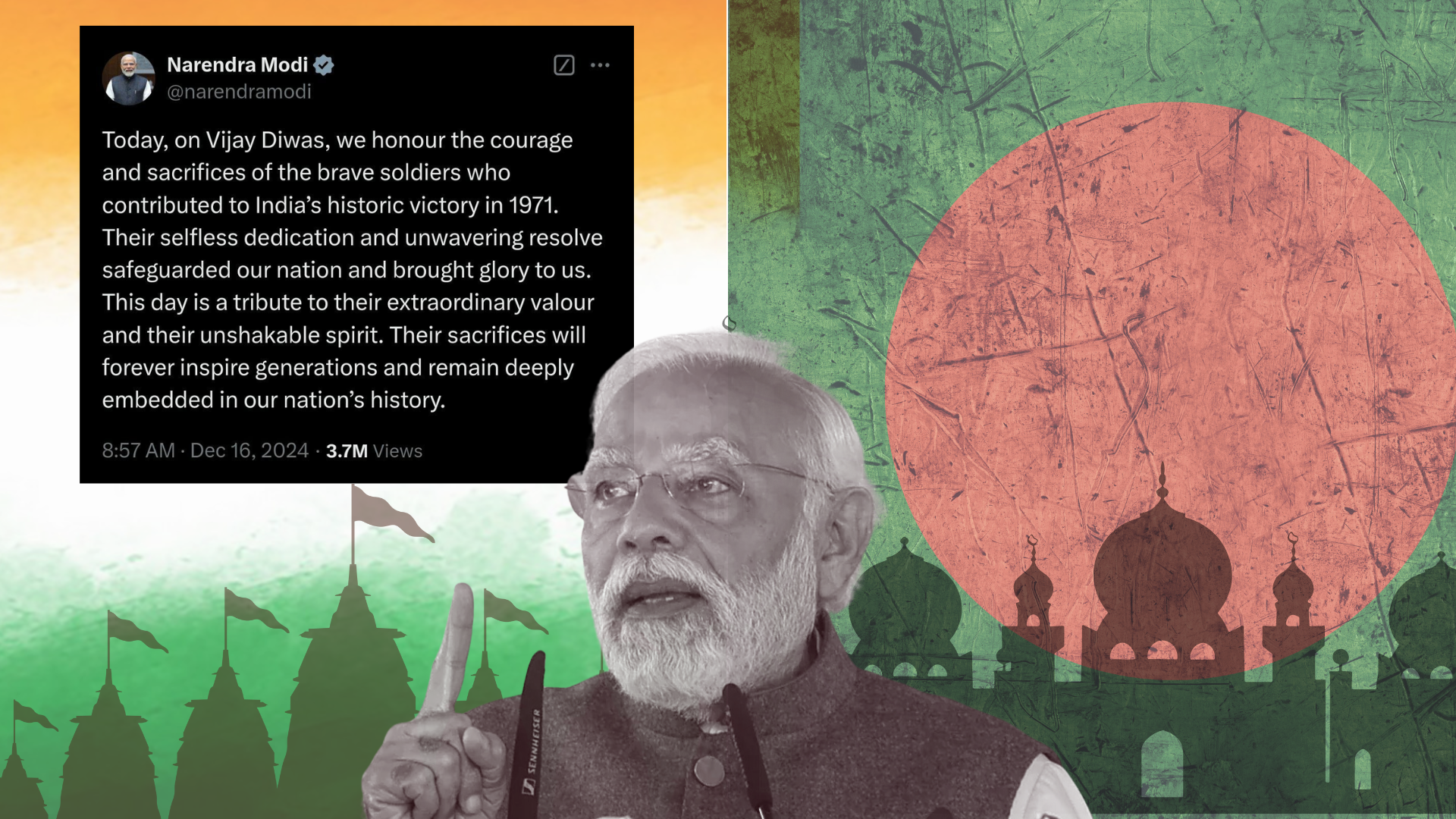Can Bangladesh and India transcend South Asia's colonial legacies?

The relationship between Bangladesh and India has long been a study in asymmetry. For decades, it has resembled a delicate dance where one partner dictates the rhythm while the other struggles to keep pace. But recent developments suggest that this fragile dynamic is beginning to crumble as Bangladesh asserts its sovereignty in ways that challenge India's self-perception as the "big brother" in South Asia. This transformation raises profound questions about the moral responsibilities of regional powers and the meaning of true independence in a postcolonial world.
Historically, Bangladesh's ties with India have been marked by a complex interplay of dependency and domination. From the 1971 Liberation War to the treaties and memoranda of understanding signed over the decades, the balance of power has overwhelmingly tilted towards New Delhi. The persistent border killings, trade disparities, and political interference have only deepened the perception that Bangladesh exists as a subordinate rather than an equal. This dynamic reached its zenith during Sheikh Hasina's tenure, a period characterised by India's outsized influence on Dhaka's policies.
This era can be described as one of "soft colonialism," where Bangladesh's sovereignty was compromised in exchange for political stability. Treaties disproportionately favouring India became the norm, and protests against these arrangements were met with repression. The fear of speaking out against Indian interests grew so pervasive that it symbolised the erosion of Bangladesh's democratic fabric.
The recent ousting of Sheikh Hasina represents more than just a political shift. It signifies a collective yearning for dignity and self-determination, a reclamation of what Sir Isaiah Berlin would describe as both negative and positive freedom. Negative freedom, or the absence of external constraints, reflects Bangladesh's desire to shed India's overbearing influence. Positive freedom, the ability to act autonomously and shape its destiny, embodies the nation's quest for equitable partnerships based on mutual respect.
Certain quarters in India, however, still appear ill-prepared for this change. Their reactions—ranging from inflammatory rhetoric in political circles to disinformation campaigns in some sections of the media—betray a deep unease. The arrest of former ISKCON leader Chinmoy Krishna Das Brahmachari and the killing of a Muslim lawyer in Chattogram have been weaponised to stoke communal tensions and paint Bangladesh as unstable. These narratives, far from fostering regional harmony, reveal India's discomfort with losing its grip on a neighbour it once controlled with ease.
This behaviour speaks to a broader psychological and geopolitical dilemma. Big powers often struggle to transition from dominance to partnership. For India, the loss of a pliant ally like Sheikh Hasina represents not just a strategic setback, but also a symbolic blow to its self-image as the regional leader. The shift in Bangladesh's stance challenges India to rethink its approach to leadership.
Sir Berlin's framework helps illuminate why this transition is so fraught. Negative freedom without positive freedom risks perpetuating cycles of dependency; positive freedom without mutual respect risks devolving into isolationism. True freedom, both for individuals and states, lies in the interplay of the two. For Bangladesh, this means asserting its sovereignty while cultivating relationships grounded in dignity. For India, it means relinquishing the allure of hegemony in favour of ethical leadership.
This moment also demands introspection from India's political establishment. The rise of Hindu nationalism and populist rhetoric has created a domestic environment where dominance over smaller neighbours is seen as a measure of strength. The BJP-led government, elected three consecutive times, has often conflated regional leadership with coercion. Allowing Sheikh Hasina safe haven while undermining the recent student-led mass uprising in Bangladesh and the country's new government is symptomatic of this mindset. Yet, such tactics are counterproductive, eroding trust and destabilising a region already fraught with tensions.
Bangladesh, too, faces critical challenges. As it seeks to redefine its relationship with India, it must address the internal vulnerabilities that have historically made it susceptible to external manipulation. Strengthening democratic institutions, promoting national unity, and ensuring justice for all citizens—regardless of religion or ethnicity—are essential steps. Sovereignty without internal cohesion is fragile; autonomy without accountability is hollow.
The broader question is whether South Asia can transcend the legacies of colonialism and embrace a model of cooperation that prioritises collective well-being over individual dominance. India, as the region's largest and most influential nation, bears a unique responsibility in shaping this future. By embracing humility and reciprocity, it can transform its role from a "big brother" to a genuine partner. For Bangladesh, this moment represents an opportunity to lead by example, demonstrating that sovereignty and solidarity are not mutually exclusive.
The moral vision required to achieve this transformation is not merely a matter of policy but of principle. It demands a recognition that true leadership lies in empowering others, not in subjugating them. For India, this means treating its neighbours not as instruments of its ambitions but as collaborators in a shared journey. For Bangladesh, it means carefully balancing independence and interdependence with courage and wisdom.
The path forward is a geopolitical challenge as well as an ethical imperative. The question is not who holds power, but how that power is wielded, whether it is used to dominate or to uplift, to impose or to inspire. In this, both Bangladesh and India have a choice: to perpetuate the cycles of history or to break free from them and forge a future defined by dignity, justice, and shared prosperity.
Dr Kazi ASM Nurul Huda is associate professor of philosophy at the University of Dhaka. He can be reached at huda@du.ac.bd.
Views expressed in this article are the author's own.
Follow The Daily Star Opinion on Facebook for the latest opinions, commentaries and analyses by experts and professionals. To contribute your article or letter to The Daily Star Opinion, see our guidelines for submission.




 For all latest news, follow The Daily Star's Google News channel.
For all latest news, follow The Daily Star's Google News channel. 

Comments